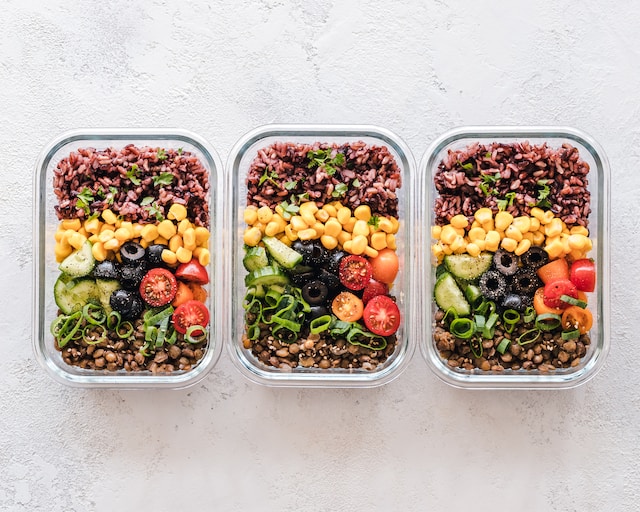Greetings, WeightLoz reader! If you’re on a journey to shed excess pounds and embrace a healthier lifestyle, you’ve come to the right place.
In this article, we’ll delve into the world of plant-based diets and explore how this approach can pave the way for sustainable weight loss.

What is a Plant-Based Diet?
Let’s start by clarifying what a plant-based diet entails. At its core, a plant-based diet is centered around consuming foods primarily derived from plants.
These foods encompass a rich variety of fruits, vegetables, whole grains, legumes, nuts, and seeds. While there are diverse interpretations of what constitutes a plant-based diet, a common theme is the focus on minimizing or entirely excluding animal products.
Read : What is the Ice Hack for Weight Loss?
The Health Benefits of a Plant-Based Diet
Before we delve into the weight loss aspect, it’s essential to recognize the numerous health benefits associated with a plant-based diet.
These benefits extend beyond the realm of weight management and encompass improved heart health, lower cholesterol levels, and reduced risk of chronic diseases like type 2 diabetes and certain cancers.
By adopting a plant-based diet, you’re making a proactive choice for your overall well-being.
Read : Weight Loss and Sleep: The Connection
How a Plant-Based Diet Supports Weight Loss
The allure of a plant-based diet in the context of weight loss is grounded in its unique nutritional composition.
Plant-based foods are generally lower in calorie density compared to processed and animal-based foods.
This means you can consume a larger volume of food for fewer calories, resulting in a satisfying and fulfilling eating experience without the excess calories.
Moreover, plant-based foods are brimming with dietary fiber. Fiber plays a pivotal role in promoting feelings of fullness and satiety.
When you incorporate fiber-rich foods into your meals, you’re less likely to overeat, which can contribute significantly to your weight loss efforts.
Scientific Support for Plant-Based Weight Loss
The effectiveness of a plant-based diet for weight loss isn’t just anecdotal; it’s backed by scientific research.
Multiple studies have indicated that individuals following plant-based diets tend to have lower body mass indexes (BMIs) and lower obesity rates.
These diets have shown a propensity to improve metabolism, enhance cardiovascular health, and encourage sustainable weight loss.
Read : Nutritious Overnight Oats for Weight Loss
What to Include in a Plant-Based Diet
Wondering what foods to include in your plant-based meals? Here’s a snapshot of the essentials:
- Fruits and Vegetables: These should form the foundation of your meals. The vibrant colors of fruits and vegetables indicate a diverse range of nutrients, antioxidants, and vitamins.
- Whole Grains: Opt for whole grains like brown rice, quinoa, whole wheat pasta, and oats. These provide sustained energy and essential nutrients.
- Legumes: Beans, lentils, chickpeas, and other legumes are excellent sources of plant-based protein and fiber.
- Nuts and Seeds: These are not only packed with healthy fats but also provide a satisfying crunch to your meals.
- Plant-Based Protein Sources: Tofu, tempeh, seitan, and plant-based meat alternatives can offer protein diversity.
Creating a Sample Plant-Based Meal Plan
Curious about what a day on a plant-based diet might look like? Here’s a simple sample meal plan:
Breakfast:
- A bowl of oatmeal topped with sliced bananas, chia seeds, and a drizzle of almond butter.
- A glass of freshly squeezed orange juice.
Lunch:
- A colorful salad with mixed greens, cherry tomatoes, cucumbers, bell peppers, and a generous serving of hummus.
- A whole-grain roll on the side.
Dinner:
- Stir-fried tofu with a medley of broccoli, carrots, and snap peas, served over quinoa.
- A side of steamed asparagus.
Snacks:
- Carrot and celery sticks with guacamole.
- A handful of mixed nuts.
Tips for Transitioning to a Plant-Based Diet
Transitioning to a plant-based diet doesn’t have to be daunting. Start by gradually incorporating more plant-based foods into your meals and familiarizing yourself with new recipes.
Educate yourself about plant-based sources of protein, calcium, and other essential nutrients to ensure a balanced diet.
When dining out, seek restaurants that offer plant-based options, and don’t hesitate to customize your order to suit your preferences.
Read : Navigating Emotional Eating
Conclusion
As we wrap up our exploration of plant-based diets for sustainable weight loss, remember that every step you take toward incorporating more plant-based foods into your diet can make a difference.
The research-supported benefits, coupled with mindful eating and an active lifestyle, create a promising path toward improved health and weight management.
Whether you’re making a complete transition or simply adding more plant-based meals to your repertoire, you’re investing in your well-being and embracing a lifestyle that resonates with both your body and the planet.
This article provides a starting point for your journey, but it’s just the tip of the iceberg. For further insights, consider diving into reputable resources that delve deeper into the world of plant-based nutrition.
By making informed choices and nurturing your body with plant-powered goodness, you’re embarking on a transformation that has the potential to impact not only your weight but also your overall quality of life.





